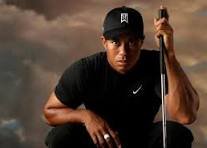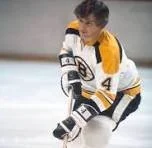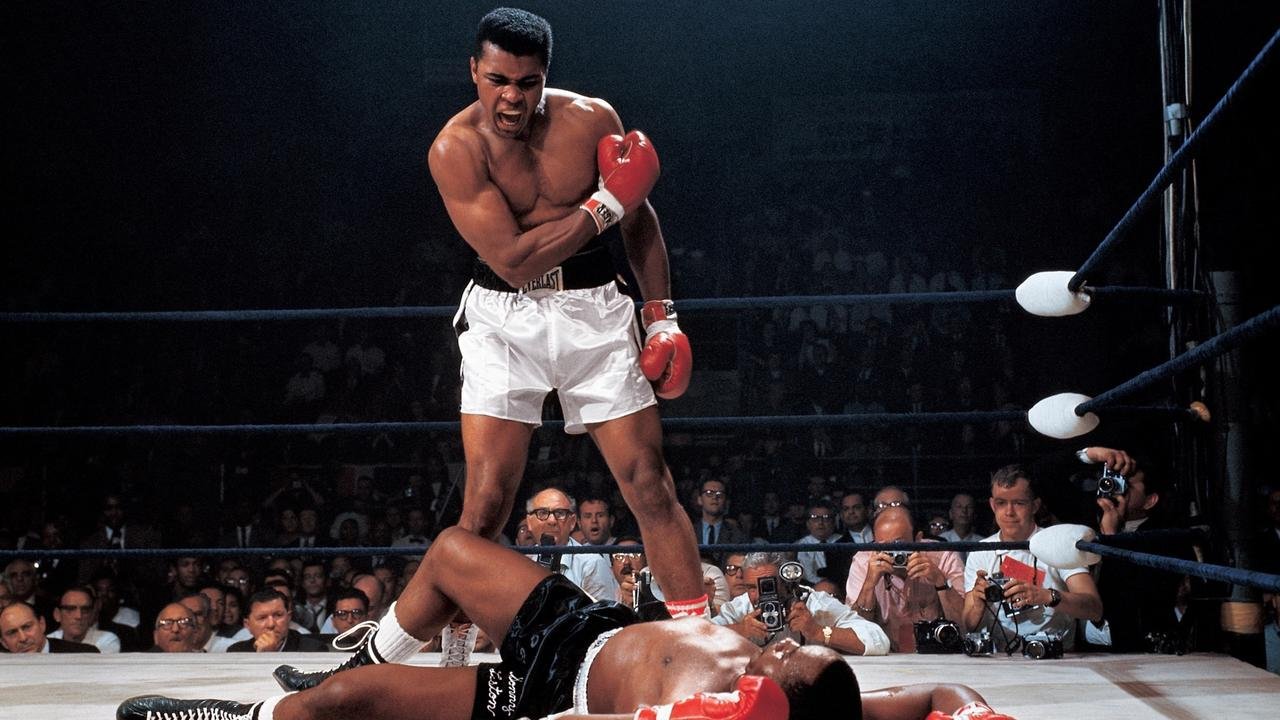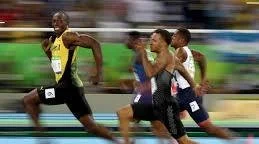Ranking the greatest athletes of our time
In many ways, we’ve been living through the golden age of American sports— desegregation and the rise of the black athlete; the ascendancy of pro football; the expansion of baseball, basketball and ice hockey; the growth of soccer; Title IX and the explosion of women’s sports; the ascent of ESPN and its myriad children; and the ability to view at home or on our phones almost any major game or match at any time.
More than perhaps any other previous generation, we have been, in fact, inundated with sports for the entirety of our lives; it may be the one common thread running through our times. The greatest athletes of our era have become renowned and almost totemic figures, more popular than politicians, as famous as performers, more influential than writers or artists.
But who have been the absolute best?
That is, during our era; so, no Babe Ruth or Jesse Owens, no Bill Tilden or Jack Dempsey. Just the athletes from the post-war period through today.
And we’re going to be a little provincial about this, too. We’ll freely admit that we don’t closely follow sports that are big in the rest of the world but not that much in North America. That is, we don’t know very much about cricket and rugby and Formula 1 racing and all the others that attract massive attention elsewhere.
And, we must admit, our knowledge of the world’s most popular sport—soccer, or more precisely, football—is limited. (We’ve paid attention to the World Cup but have no idea who’s a striker for Tottenham Hotspur and who’s a midfielder for Paris St. Germain.)
So, this ranking is mostly focused on sports closer to home. The criteria for the ranking are, well, completely personal and idiosyncratic. Generally, it is not popularity; it is dominance. Who was, for a moment, the best of the best, at his or her sport? Who separated, for a time, from all the other extraordinary athletes who played the same game?
Longevity is important, but not determinant. We’re looking at the athletes’ apex, not their whole career. Popularity and influence are factors, but don’t overshadow accomplishments.
Here, then, is our list, in reverse order counting down. Agree, disagree? Did we miss someone or included someone we shouldn’t have? Let us know what you think.
10. Jim Brown
He played professional football in the late ‘50s and ‘60s, before the sport became a national obsession. He played only for nine years, before walking away to a Hollywood career. He won only one championship during his NFL tenure.
But for the entirety of his football career, he was without peer.
He led the league in rushing, when the running game was far more important than it is now, in eight of his nine years. He set the seasonal and career records, which stood for years, which stood until the season was lengthened. And when he ran, he seemed from a different planet, contemptuous, indestructible, stiff-backed, with head held high and tacklers quite literally bouncing off him.
Brown was the Cleveland Browns’ offense— and no, the team wasn’t named after him, but it should have been. When playing the Browns, everybody knew he was going to get the ball, on almost every play, and it still didn’t matter.
Oh, and he was also one of the greatest lacrosse players ever.
9. Tiger Woods
The career was cut short by injury and shadowed by scandal and tragedy, but at his best, he was the feral tiger of the links.
He was the only man in golf’s modern era to win four consecutive major titles and for a time held the 72-hole scoring record at all four majors. He held the No. 1 spot in the official world golf rankings continuously for more than five years—on two separate occasions. In total, he spent 683 weeks atop the rankings. That’s more than 13 years.
Perhaps equally important, he made golf exciting, more than a niche, white-man’s, country-club sport. He brought in millions of fans and opened the doors to the sport to people who previously hadn’t been allowed in some country clubs.
8. Bobby Orr
This is, of course, a controversial choice because if we’re talking hockey, why not Wayne Gretzky? Gretzky was the “Great One,” and holds all the scoring records and was undoubtedly wonderful. But Orr revolutionized the sport. He changed the way defense is played, using his speed, scoring and play-making skills to break the mold of big, slow defensemen and usher in today’s fast-paced modern game.
My wife, who is not at all a sports fan, used to go to ice hockey games in the late ‘60s and ‘70s because that was my newspaper job. She didn’t know anything about the sport, but when she saw Orr, she said, “he’s playing a different game than all the others.”
Orr holds the record for most points and assists in a season by a defenseman, and he won the league scoring title twice—as a defenseman. In a career foreshortened by balky knees, he also won eight consecutive Norris Trophies as the NHL's best defenseman and three consecutive Hart Trophies as the league's MVP.
The youngest-ever inductee in the Hockey Hall of Fame, there’s a reason there’s a statue of Orr outside Boston Garden.
7. Serena Williams
She never did get that elusive 24th major championship to break her tie with Margaret Smith Court as the all-time leader in major titles, men or women. But in an era when women’s tennis—and for that matter, all women’s sports— saw phenomenal growth and attracted exceptional athletes, she stood alone.
She changed the way women played tennis, overwhelming opponents with power and strength. She shattered the previously accepted norm of lithe female tennis players and redefined what fitness was.
Williams was ranked No. 1 in the world for 319 weeks, including a record 186 consecutive weeks. She is the only player to achieve a career Golden Slam in both singles and doubles. She won gold medals in the Olympics in 2000, 2008 and 2012.
And in addition to her 23 major singles titles, she also won 14 Grand Slam doubles titles with her sister Venus.
6. Willie Mays
Has there every been another baseball player—or any athlete—who combined the power, speed and grace of Willie Mays? He not only made everything he did look easy, he made it also look exciting.
Mays won the National League Most Valuable Player award in 1954 and 1965 and should have won it at least several other times, finishing in the top six of the voting 12 times. He made the All-Star team an incomprehensible 20 years in a row. He was among the best power hitters of our generation, the best baserunners and the best fielders.
As an all-around every-day player, there has been no equal.
5. Michael Phelps
He won 23 gold, 3 silver and 2 bronze medals, making him the most decorated Olympic athlete in history. He won medal after medal at four consecutive Olympics. In just one of those Olympics, he won eight gold medals and was the most successful athlete of the games for four Olympics in a row.
He broke swimming world records when he was 15 and was also the oldest individual champion in Olympic swimming history.
Yes, it helps that swimming has so many different events, but Phelps dominated them all—from 100- meter butterfly to 400-meter individual medley. He was a fish in water.
4. Pelé
Edson Arantes do Nascimento, better known as Pelé, was the most accomplished and most popular player of the world’s most popular game for his entire career—and for decades after. He scored an almost unfathomable 1,279 goals in 1,363 games, which is a Guinness World Record. He is the only player to win three World Cups, in 1958, 1962 and 1970.
I saw him play in person, near the end of his career, with the New York Cosmos, when he was 34 and had already retired once. I knew very little about soccer then, but I saw him dribbling between defenders’ legs and bicycle-kicking goals into the net and I could easily see that 5-foot-8-inch Pelé was still head and shoulders better than anyone else on the pitch.
3. Muhammad Ali
Forget, for a moment, the symbolic importance. Forget how he crystallized both the hopes and the fears for so many for so long. Forget his sociological and racial impact.
Forget the bluster and the charmingly bad poetry, the joy of combat, the abortive comebacks and his extraordinary wit.
Strictly as a boxer, there has never been anyone like him. No boxer ever combined the size and power and the hand speed and foot speed of Ali. When boxing was still important—that is, in the 50s, 60s, and 70s, when it was must-watch—Ali was the king.
It was an era when boxing attracted top-notch talent. But Ali floated like a butterfly and stung like a bee and defeated them all—Joe Frazier, George Foreman, Sonny Liston, Floyd Patterson. Depending on the sponsoring body, he variously held the heavyweight boxing crown from 1964 to 1970 and from 1974 to 1978 and from 1978 to 1979.
In fact, he was probably right when he routinely insisted, "I am the greatest."
2. Michael Jordan
Yes, of course. But let’s not forget it took time for Michael Jordan to become Michael Jordan.
He was drafted into the NBA not first, but third. He didn’t win his first championship until his seventh season. During those early years, many considered him a selfish scorer who could not get over the top.
And then.
He won five more titles in the next seven years. He won five MVPs, six NBA Finals MVPs and one Defensive Player of the Year award. He also has 10 regular-season scoring titles. He won two Olympic golds and was the face of the extraordinary 1992 Olympic “Dream Team.”
But of course, his accomplishments transcended basketball and for that matter, all sports. He became, probably, the second-most well-known athlete of our time, after Ali. He made the NBA an international sensation, and is perhaps directly responsible for the fact that the last six MVPs of the league have all been foreign-born.
He also made, of course, sneakers big business with his Air Jordans and may have been primarily responsible for the success of a major global corporation.
Like many on this list, he changed the way the game is played, both on and off the court.
1. Usain Bolt
He was, without question, the greatest sprinter ever. The greatest runner ever. Still, the fastest human to ever live.
Eight years after his retirement, Bolt still holds the world record for the 100-meter dash. Fifteen years after he set it, he still holds the world record for the 200-meter dash. In a sport where differences are measured in hundredths of a second, Bolt’s record time for the 100 is almost two tenths of a second better than the next fastest.
When he set the 100-meter record, an astonishing 9.58 seconds, his average speed was 24 miles per hour and he reached a top speed of 27.7 mph. That’s fast enough to break the speed limit in many residential neighborhoods.
He won gold medals in the 100-meter and 200-meter races at three consecutive Olympic Games. That had never been done before.
And he didn’t just win—he won overpoweringly, sometimes slowing up at the end of races so he could look back at the greatest sprinters in the world who trailed him by so much. No other runner was close.
If speed is the most important asset in all sports—and there’s a good case to be made that it is—being the fastest athlete on earth is enough to earn the top spot in our ranking.
***
And here’s the list of great athletes who almost made our top ten:
Simone Biles
Tom Brady
Novak Djokovic
Steffi Graf
Wayne Gretzky
Bo Jackson
LeBron James
Sandy Koufax
Katie Ledecky
Mickey Mantle
Lionel Messi
Joe Montana
Bill Russell
PLEASE COMMENT! We sure would like to hear your thoughts on this ranking of the best athletes of our lives. Where did we—okay, Neil—go wrong. We have been working to come up with a new commenting system for the site. To smooth the process, make sure you check, "Comment as a guest." We are trying to get them to remove the name, address, password requirement. In the interim you can just fill those lines in with gibberish. Or just email your complaints about the ranking to us at: WritingAboutOurGeneration@gmail.com."
Neil Offen was a sportswriter and sports columnist in New York and has published several books on sports, including "God Save the Players."











